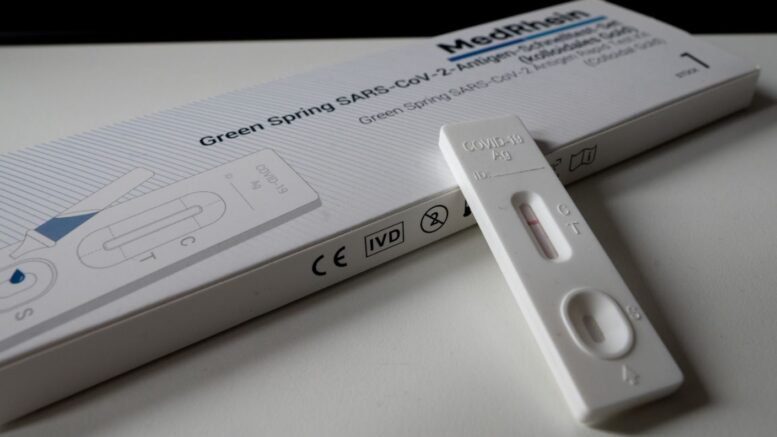Since the onset of the COVID-19 pandemic, there has been an unprecedented surge in the development of innovative testing products to combat the spread of the virus. These advancements have not only revolutionized the way we diagnose and manage COVID-19 but have also paved the way for more efficient and accessible testing methods.
In this article, we will explore five cutting-edge COVID-19 testing products that have made a significant impact on the global response to the pandemic.
CRISPR-Based Rapid Tests
CRISPR (Clustered Regularly Interspaced Short Palindromic Repeats) technology, originally known for its revolutionary gene-editing capabilities, has been repurposed for COVID-19 testing.
CRISPR-based tests work by utilizing the genetic material of the virus to identify its presence in a sample. The process is highly accurate and can deliver results in a matter of minutes, making it a valuable tool for rapid screening in high-risk settings such as airports and healthcare facilities.
Saliva-Based PCR Tests
Polymerase Chain Reaction (PCR) tests have been the gold standard for diagnosing COVID-19, but the traditional method involves uncomfortable nasopharyngeal swabs. Saliva-based PCR tests offer a non-invasive alternative, where individuals provide a saliva sample instead of undergoing an unpleasant swab.
These COVID tests are not only more comfortable but also easier to administer, reducing the risk of transmission for healthcare workers and improving testing compliance among the general population.
At-Home Antigen Test Kits
At-home COVID-19 testing has gained traction as an accessible and convenient option for individuals who may have been exposed to the virus or are experiencing symptoms. Antigen test kits, which detect viral proteins, have been adapted for at-home use.
Users can collect their samples, usually through a nasal swab, and receive rapid results in the comfort of their homes.
These kits empower individuals to quickly assess their COVID-19 status and take appropriate precautions to prevent further transmission.
Digital Health Passports
Digital health passports have emerged as a multifaceted solution to the challenges posed by the pandemic.
These passports securely store an individual’s COVID-19 testing and vaccination status, allowing them to demonstrate their health status when traveling, attending events, or accessing certain facilities.
Blockchain technology ensures the integrity and privacy of the data. These passports not only facilitate safe movement but also contribute to a more efficient and organized pandemic response.
Wastewater Testing
Wastewater testing has proven to be a powerful early warning system for COVID-19 outbreaks within communities. By analyzing samples of wastewater for traces of the virus’s genetic material, public health officials can detect potential outbreaks before they become widespread.
This innovative method provides a proactive approach to containing the virus and can complement traditional clinical testing efforts. Wastewater testing has the potential to serve as a vital tool for monitoring and responding to future viral threats as well.
Other Alternatives
Apart from the above-mentioned testing methods, molecular diagnostic tests, antibody tests, point-of-care tests, and contact tracing systems are also available to help monitor the spread of COVID-19.
As researchers continue to develop more effective solutions to combat the virus, it is important for individuals to keep themselves informed about the latest advances and take appropriate action.
Being proactive in taking preventive measures such as wearing a face mask, maintaining social distance, and regularly washing hands will help mitigate the risk of exposure and protect our communities.
The ongoing fight against COVID-19 has spurred remarkable innovation in the field of testing. From rapid CRISPR-based tests to digital health passports and wastewater surveillance, these products have expanded our toolkit for identifying and managing the virus.
As the global response continues to evolve, these innovative testing solutions will play a crucial role in controlling the spread of COVID-19 and shaping our approach to future pandemics.
